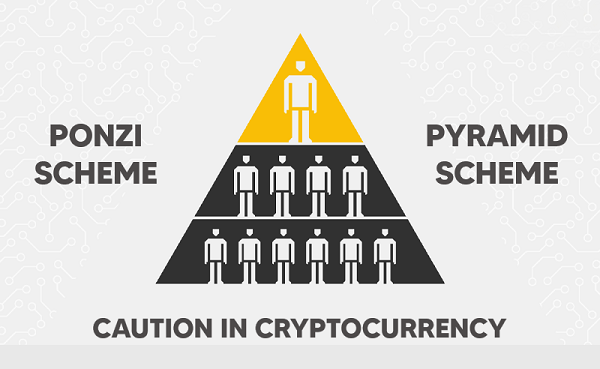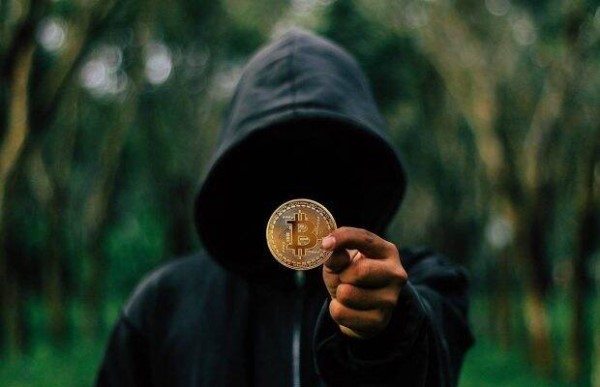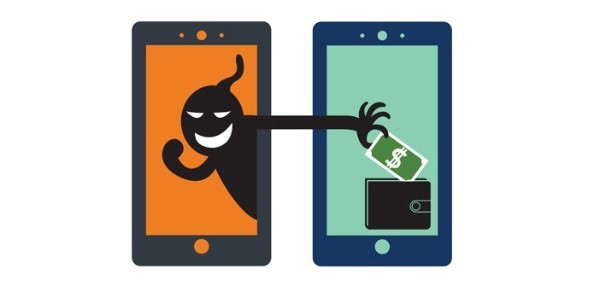

What Are Shapes Of Cryptocurrency Scams 2022 – Tips To Avoid Crypto Scams
25 April 2022
Cryptocurrency Scams 2022 is setting a new high. With new analysis revealing fraudsters stole $14 billion in cryptocurrency last year.
Bitcoin, Ethereum, Solana, and hundreds of other cryptocurrencies are popular cryptocurrencies in online trade, and a prudent investor may benefit handsomely. However, the temptation of instant riches might blind some individuals to the dangers and allow crooks to make cryptocurrency scams.
This is not a government-issued or central bank-issued currency. Despite this, “crypto” may be used to purchase products and services, exchanged for US dollars and other traditional currencies on decentralized exchanges, and even obtained through specialist ATMs.
Without the regulation of any organisation, cryptocurrency becomes the fertile soil for scammers. Via this post, bePAY will show you in detail what are cryptocurrency scams 2022 as well as quackeries that crooks usually use to attack cryptocurrency users. Now let’s dive into it.
- What Are Cryptocurrency Scams?
- What Are Some Common Cryptocurrency Scams Examples?
- How Do I Avoid Crypto Scams?
- What Are Signs Of Crypto Scams?
- What Do You Do If You Get Scammed By Crypto?
- FAQs About Cryptocurrency Scam
- Closing Thoughts
What Are Cryptocurrency Scams?
Cryptocurrency scams are the actions related to frauds or rackets that crooks who use the internet trying to hack or theft an amount of cryptocurrency from crypto users
In general, cryptocurrency scams come into two categories:
Attempts to get access to a victim’s digital wallet or login credentials. This implies that fraudsters will attempt to get information that would enable them to access a digital wallet or other sorts of confidential information, such as security codes. This may even entail access to real hardware in certain circumstances.
Directly transmitting bitcoin to a fraudster as a result of impersonation, false investment or business offers, or other nefarious tactics.

What Are Cryptocurrency Scams?
What Are Some Common Cryptocurrency Scams Examples?
In this part, we will show you some common cryptocurrency scams examples metamorphosis
Roman Scams
Scammers often use dating websites to convince unwary victims that they are in a genuine long-term relationship. After establishing confidence, discussions often move to lucrative cryptocurrency prospects and the ultimate transfer of money or account authentication credentials. Around 20% of money allegedly stolen in romance scams was in Bitcoin.
Endorsements By Celebrities
Arun came across a ‘celebrity-endorsed’ social media post promising high profits on Bitcoin. He phoned the firm and was enticed to make a £300 payment during a phone discussion with a “trader.” He saw a rise in his investment after enrolling on his trading account on the internet.

Some Techniques That Common Cryptocurrency Scams Use
Arun proceeded to invest further funds as a result of pressure from another “trader” inside the organization and was eventually convinced to take out a loan arranged by the criminal. Arun discovered the fraud when he was unable to access his account or contact the firm.
Crypto Phishing
Phishing attempts are designed to get information regarding online wallets used in the cryptocurrency industry. Scammers are particularly interested in crypto wallet private keys, which are the keys necessary to access the wallet’s money.
Their operation is similar to that of several common frauds. They send an email directing recipients to a specially designed website where they are prompted to submit their private key information. After obtaining this information, hackers may steal the cryptocurrency stored in those wallets.

Cryptocurrency Scams Examples 2022
>> Read Also: What Is Crypto Wallet? And Why It’s Necessary For All Crypto Users
Cryptocurrency Airdrop Scams
One of the Cryptocurrency Scams examples that are prevalent in decentralized finance, or DeFi, the industry is tied to something called an airdrop in cryptocurrency.
Recently popular, malevolent actors have seized on the habit of airdropping tokens, which are normally used to establish and expand a grassroots community. An airdrop is when a platform or program distributes tokens into your digital wallet as a reward for particular behaviours.
When you exchange an airdropped token for a more well-known token, you grant a protocol more permissions than you realize. This enables the hacker to have access to all of your wallet’s valuables.
Dusting Attacks
When an attacker distributes very little quantities of bitcoin to other cryptocurrency wallets, this is referred to as a dusting assault. The assault makes absolutely no effort to seize the funds. Rather than that, it concentrates on identifying the individuals or organizations responsible for the wallets through these transactions. It attempts to deanonymize them, infringing on their privacy.

Dusting Attacks
>> Read Also: Cryptocurrency Explained: What Is Dusting Attack In Crypto?
‘Pig Butchering’ Crypto Scams
At least some of the most popular cryptocurrency frauds have amusing names. However, the consequences of this wicked deception are severe.
This fraud often starts on online dating services, when the scammer uses an appealing profile photo to entice the “pig.” The scammer then utilizes online chatting to gradually “fatten up” the metaphorical swine, with the victim getting closer to and more trusting of the culprit.
The fraudster finally informs the victim of their massive winnings in the cryptocurrency markets and convinces them to join them in certain ventures that first seem to pay off handsomely on paper. Naturally, the money is lost immediately after it is delivered, with the fraudster utilizing counterfeit websites to trick their victim into transferring increasing quantities of money to this bogus account.
Withdrawals are impossible, and the “pig,” now fattened to the brink of killing, is abandoned to the elements. This particular sort of fraud is said to have started in China and is renowned for its extended length.
Cryptocurrency Ponzi Schemes
Reports of individuals amassing enormous wealth via bitcoin inevitably entice other investors. However, there are opportunists out there that are willing to take your cryptocurrency through a traditional Ponzi scheme.
A Ponzi scheme is one in which, rather than being invested in assets to earn returns, new investors’ money is used to pay earlier investors what they believe to be substantial returns, so recruiting other investors. The scammers take a portion of the money for themselves in the process.

Cryptocurrency Ponzi Schemes
Scams Involving Giveaways
Everyone appreciates getting something for nothing. That is why giveaways are one of the most effective techniques of bitcoin theft.
In one popular scam, victims are told they may double their cryptocurrency if they transfer it to a celebrity – who is obviously a phoney. In May 2021, the US Federal Trade Commission informed Reuters that in only six months, $2 million (£1.45 million) had been given to Elon Musk impersonators.
Telegram and Twitter are notorious for housing well-known fraudsters who offer money in the form of “airdrops” — essentially, free coins transferred directly to your bitcoin wallet. The kicker is that victims are often coerced into disclosing sensitive personal information or duped out of their own cryptocurrency.
Employment Crypto Scams
Students and job seekers are often the targets of employment scams. They are provided bitcoin in exchange for completing chores and then informed that they now owe money to their new employer. This is something that everyone who has grown up in the gig economy will recognize.
Criminals may also masquerade as recruiters, and social media is awash with complaints about criminals offering high-profile positions in exchange for data.
How Do I Avoid Crypto Scams?
After you have introduced some common cryptocurrency scams. Here are a few pointers on how to prevent them. There are a lot of complex and convincing crypto scams. To ensure your safety, follow these suggestions:
Ensure The Wallet’s Security – In order to invest in cryptocurrencies, you must have an encrypted wallet containing your private keys. It is critical to safeguard this information. If a business asks for your keys in exchange for an investment, it’s most likely a hoax. Secure the keys to your wallet.
Be Careful With The Wallet Apps – In the beginning, just transmit a modest amount of money to verify that crypto wallet software is safe to use. If you detect any strange behaviour when upgrading your wallet app, stop the update and delete the program.
Invest Only In Areas You Are Familiar With – For now, it’s advisable to put off investing in a specific cryptocurrency until you’ve done more study into how it operates.

How Do I Avoid Crypto Scams?
Avoid Scams By Taking Your Time – Scammers typically employ high-pressure techniques to persuade you to invest your money fast — for example, by offering bonuses or discounts if you engage immediately. Prior to making a financial investment, do your own study.
Be Aware Of Advertisements – Adverts on Facebook, Twitter, and other social media platforms are routinely used by fraudsters to spread their fraudulent schemes. Celebrities or high-profile businesses might be used to establish a false impression of legitimacy, or they can offer freebies or cash. Don’t be afraid to be sceptical of crypto-related chances that you see advertised on social media.
Ignore Cold Calls – Do not respond to unsolicited cold calls about cryptocurrency investment opportunities. Almost invariably, these calls are a fraud. When someone approaches you in this manner, do not give them any personal information or send money.
Only Use The Official Website – Guarantee that the link URL is correct, some scammers created nearly exactly the same site as the official website by adding some dot or a slash for instance. Be sure to only use programs that are officially supported by the platform you’re using. The Google Play Store and the Apple App Store are better places to get your software if you’re worried about fakes.
Make Your Own Research In This Field -Take the time to do your homework before investing in any cryptocurrency. Look into new crypto-currencies you haven’t heard of; if you can, study up on their whitepapers, learn more about their founders and how they run their business, and seek out real-world user feedback. Check for fraud by using a current and reliable list of phoney cryptocurrencies.
Too Good To Be True – Guaranteed returns or becoming wealthy quick are red flags that a company is a rip-off artist. Don’t believe everything you read or hear.
As with any investment opportunity, never risk money you can’t afford to lose by making an investment in it. The volatile and speculative nature of cryptocurrencies necessitates an understanding of the dangers. Even if you aren’t being scammed.
What Are Signs Of Crypto Scams?
Most essential, you must ensure that you are aware of the warning indications of cryptocurrency fraud in the future. Several common red flags include the following:
- The URL for the exchange website to which you are attempting to log in is peculiar. For example, if you attempt to login to Coinbase.com but the URL is C0inbase.com or coinbase.net, you have most likely been duped into visiting a hacker-run phishing site.
- Someone requests your private key or password recovery phrase. If somebody requests this, they are very certainly attempting to defraud you.
- Your exchange contacts you by email from an unusual-looking address, such as [email protected] – see #1 above.
- You get an email from an exchange or cryptocurrency firm that is riddled with mistakes and written in bad English.
- A guarantee that you will earn money: do not accept such claims, especially if they include celebrity endorsements or testimonials, since they may simply be fabricated.
- Guaranteed returns on large payouts: “Guaranteed” returns are a major red flag.
- Gratuitous funds: Free money offers, whether in cash or bitcoin, are always fraudulent.
- Claims made in broad strokes without supporting specifics or explanations: Take such assertions with a grain of salt.

Signs of Crypto Scam
These are only a few of the most typical red flags, but there are several more. If you are in any doubt, it is prudent to proceed cautiously. Additionally, if you believe you have been defrauded, contact a cryptocurrency lawyer immediately.
What Do You Do If You Get Scammed By Crypto?
Once you’ve realized you’ve been duped, there are a few things you may do immediately to mitigate the harm. By taking these measures promptly, you can ensure that you are doing all possible to protect yourself and your data.
Speak With Those Who Can Assist. When you become aware that you have been a victim of a scam, the first thing you should do is contact those who can assist you. A crypto lawyer can determine where the coins have been transferred and warn exchanges to the possibility of crooks utilizing their accounts. By taking preemptive measures and contacting others who may be able to assist, you give yourself the greatest chance of minimizing damage to your coins.
Take Care Of Your Information. Information is one of the most precious assets you own, and when you fall for an internet scam, you can be certain that your information is instantly compromised. There are many strategies to prevent this danger, but the most effective at the moment is to change all of your internet passwords and invest in some useful cyber security products, such as an antivirus and a VPN. With the assistance of these tools, you may prevent further data leakage.
Accept The Loss – If you’ve been hacked or victimized by fraud, you should accept the loss and work to prevent it from occurring again.

What Do You Do If You Get Scammed By Crypto?
FAQs About Cryptocurrency Scams
Is It Possible To Be Scammed Using Cryptocurrency?
Yes, by using crypto you are easily scammed. One of the most prevalent frauds in cryptocurrency is the phishing scam, which, like the traditional pump-and-dump scheme, is not crypto-specific.
Which Coin Is The Most Secure?
Bitcoin is a name that seems to be the most secure coin in the world Few have never been successfully hacked reports.
How Can I Reclaim My Cryptocurrency Scam?
Cryptocurrency is an unregulated asset class. This implies that if anything goes wrong, you are unlikely to get a refund.

What Should You Do When Got Scams?
Closing Thoughts
For many individuals, the frenzied rush into cryptocurrencies has recalled images of the Wild West. As the crypto industry continues to grow in size and complexity, it will definitely remain a primary target of fraudsters. As indicated above, crypto scams often fall into two primary categories: socially engineered efforts intended at obtaining account or security details from a target and convincing him or her to send bitcoin to a hacked digital wallet.
By learning the main methods by which fraudsters attempt to steal your information (and eventually your money), you will hopefully be able to recognize a crypto-related scam early and prevent it from occurring to you.

What Is Web 3.0 And How Does It Affect The Future?
16 March 2022
What Is Taproot Bitcoin? How Does It Affect Bitcoin?
24 June 2022
Detailed Guide Of How To Add Arbitrum To Metamask
15 July 2022
What Is Polkadot? The Next Generation Of Blockchain
21 April 2022







